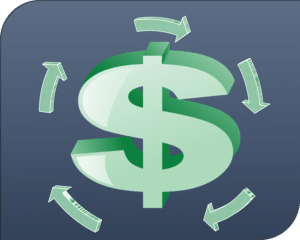How Do You Manage Business and Personal Finances?

6 Tips for Managing Your Personal Finances While Running a Business
This constant pressure and focus on business finances, in turn, makes business owners lose focus on their personal funds and earnings. And when they do start grappling with mistakes they have made along the way, they are much more likely to make poor business decisions and undermine their main source of revenue.
Financial mistakes can put the business at risk and create a vicious cycle that is very hard to break, which ultimately leads to poor business results and personal bankruptcy. Let us take a look then at what we can do to cut this problem at its root and make sure your personal finances remain healthy no matter what kind of business you might be facing at the moment.
Make Paying Yourself a Priority
This is especially important in the case of sole ownership companies where people tend to put all the profit back into the day-to-day operations, hoping they will, at some point, start reaping higher profit. This works fine and well until the company hits the first bump and starts losing revenue.
You can easily prevent this problem by making a clear separation between your personal and professional finances and giving yourself a healthy salary as compensation for the invested work. Also, even if your business doesn’t work out, your personal salary and the savings fund will help you to bounce back and keep going.
Diversify Your Investments
You need to keep in mind that, no matter how well you run your company, one small market bump can prematurely close its doors. That is why you shouldn’t put all of your eggs in one basket and use the extra revenue to diversify your investments and branch out.
This way, you will get some much-needed breathing room and remove the pressure to always make highly profitable business decisions to keep the company afloat. Even if you are not able to make the investments that will ramp up your revenue, you should always keep some cash on the side so you can intervene if the right opportunity arises.
Don’t Be Afraid of Loans
If used correctly, loans can be very useful for patching up the small financial gaps and preventing you from making some very ill-advised business decisions. What do we mean by used correctly?
Well, that usually entails using short-term, low-interest personal loan services that are used deliberately to solve specific financial problems. This way, your personal cash flow will always remain rock-solid and you will protect the business finances as well.
But, you should also avoid using loan options whenever you face any kind of financial obstacle. Multiple interest rates can destroy your personal budget.
Keep Personal Expenses Below Your Income
Yeah, it’s that simple. If you are constantly experiencing serious cash flow problems maybe it is time to take a good look at your personal expenses and see what items can be eliminated. Reducing the monthly bills, using public transport and bike for commuting, and paying more attention to the sustainability of your household can go a long way in solving these problems.
If you want to make things crystal clear, split your personal monthly, tax-deduced income into a 50-30-20 budget plan consisting of these three groups :
Personal Needs (50%)
Personal needs are regular expenses that you must pay including bills, taxes, loan interests, etc.
Personal Wants (30%)
Personal wants are the things you enjoy but are not considered absolutely necessary.
Personal Savings (20%)
Personal savings is the money you should invest or put aside for the future.
This neat way of 50-30-20 budgeting should always keep your personal expenses under control.
Streamline Company Cash Flow
This is very important since the majority of your income will come from the revenue made by your business. If you are not able to maintain a steady cash flow your personal finances will inevitably suffer.
Therefore, do your best to keep the company’s cash flow simple, streamlined, and, if necessary fueled by a line of low-interest credit. Invest your funds into the areas that will produce the biggest ROI and keep spreading the wealth only when you start earning enough. Also, you can try offering some perks to the clients that make advance payments or subscribe. These extra funds can prove to be a true lifesaver.
Think Long-Term
Otherwise, all of your budgeting efforts will be nothing more than putting out the most immediate fires. If you want to successfully run your personal finances, you need to have a very clear idea about where you want to be in a couple of years or even decades and then track your cost accounting information to make sure it happens.
Break these overall goals into smaller, manageable milestones and use these items to create a stimulating financial plan that will make your grand plans possible. If you are having problems tackling issues at this scale, don’t be afraid to ask for professional help. The investments you are going to make for professional advising will more than return in the future.
Manage Business and Personal Finances
We hope these few tips gave you a general idea about the financial strategies you can use to ensure that running your company never interferes with maintaining healthy personal finances. The present-day business world is very hasty and unpredictable.
With the situation as it is, ensuring the survival of your company, while also making sure to protect your best financial interests can be very hard. But, if you make sound financial decisions and head in the right direction it can be pulled off. Now, you know where to start.
















Leave a Reply